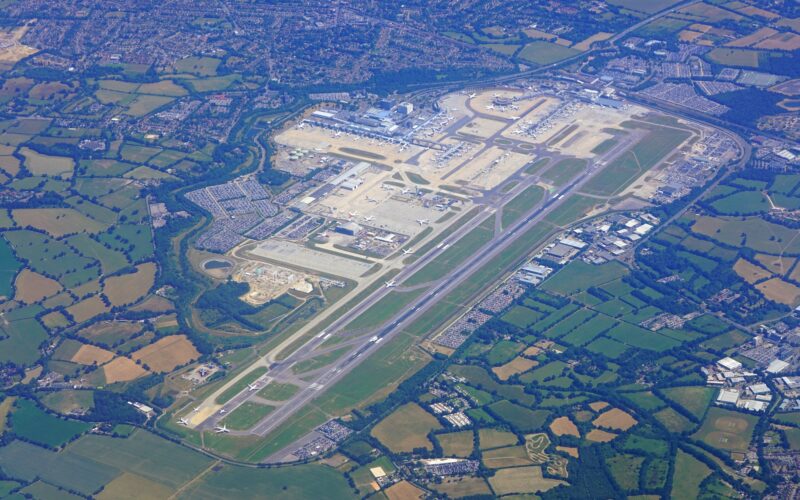London-Gatwick Airport (LGW) has published plans to bring the airport’s existing Northern Runway into routine use alongside its Main Runway.
The application, known as a Development Consent Order (DCO), was submitted to the Planning Inspectorate (PINS) on Thursday July 6, 2023.
Gatwick claims the second runway will create 14,000 new jobs and inject £1 billion into the region’s economy every year.
78% of residents who expressed an opinion on an additional runway reportedly support Gatwick’s plans, with the economic boost and new jobs they would provide for the region.
Significant commitments would be given to local communities, including legally binding agreements to control noise and reduce carbon emissions.
The ‘noise envelope’ guarantee ensures that within nine years of the Northern Runway opening, the airport’s operations will generate less noise than they did in 2019.
The airport also promises the Northern Runway will not be used between 11pm to 6:00am each day.
It would also see the number of homes eligible for an industry-leading noise insulation scheme increase from the current 2,000 to 4,300.
The Northern Runway is currently limited to acting as a taxiway, only available when the Main Runway is out of use.
The application proposes repositioning the center line of the Northern Runway 12 meters north to allow dual runway operations.
Construction could start in 2025 and be completed and ready for operational use by the end of the decade.
Gatwick Airport also promises major road improvements, including a flyover to separate airport and local traffic.
“The Northern Runway plan will help secure the long-term future of the airport and economic prosperity for thousands of families, businesses, and future generations across the region, “ said Stewart Wingate, CEO of Gatwick Airport. “If approved, our plan will also improve airport resilience, meet future passenger demand, and increase competition in the London airport market, by providing vital new international connections to support ‘Global Britain’.”
Wingate added: “The consultation and engagement activity over the past two years has been hugely valuable in shaping our plans to ensure they best meet the needs and requirements of local people, as well as our airlines, passengers and other stakeholders. We are confident that our plans are both economically and environmentally robust.”

